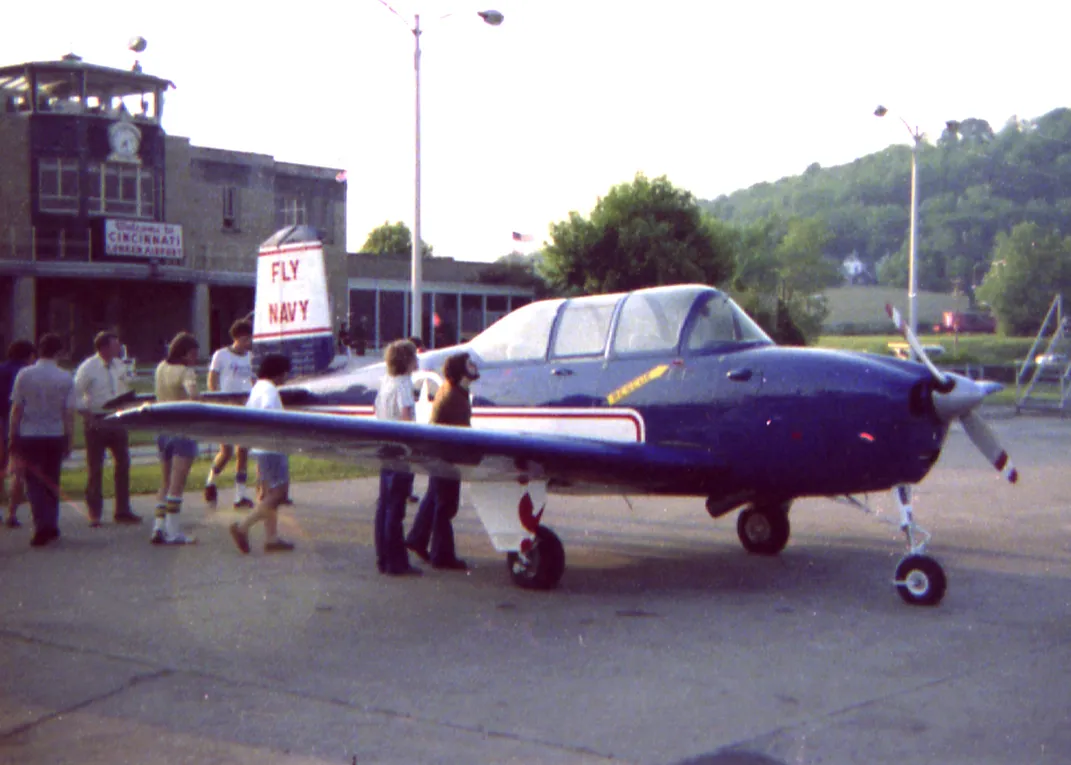Professor Armstrong
An online archive highlights the Apollo astronaut’s little-known life as an academic.
/https://tf-cmsv2-smithsonianmag-media.s3.amazonaws.com/filer/db/62/db622455-bb38-44cb-9509-1f5f6ab6af47/armstrong1974_blackboard.jpg)
Like many talented people, Neil Armstrong had a variety of jobs over the course of his life, including stints as a Naval aviator, test pilot, astronaut, and college professor. The last of these is probably the least known, since at the time—the early 1970s—Armstrong was happy to escape the spotlight that shone brightly on him as the first person to step foot on the moon.
Although he received many offers to be a university president after his Apollo 11 flight, “I just wanted to be a professor,” Armstrong told biographer James Hansen. So in August 1971, he resigned from NASA to take a teaching job at the University of Cincinnati, where he stayed for more than eight years—longer than his career as an astronaut.
The university has a nice online archive commemorating Armstrong’s time on the faculty. The collection includes some items from the astronaut’s early life, like his pilot’s log book from the Navy, but mostly it covers in pictures and documents his career in academia.
While at Cincinnati, Professor Armstrong taught graduate engineering courses in aircraft design and experimental flight mechanics. He also dabbled in children’s poetry and considered learning Russian with the help of another faculty member. As part of a research group that included physician Henry Heimlich (inventor of the Heimlich maneuver), he helped to design an artificial heart-lung system based on Apollo technology.

But the spotlight never fully went away. With help from the university information office, Armstrong fended off many requests for interviews, and when he did respond, he kept his answers short. Even other professors and students wanted a piece of his attention, which sometimes had him struggling to find ever more diplomatic ways of saying “no.” After one student in a home economics class asked him for information about space clothing, Armstrong responded to the professor:
I am certainly more than willing to help where I can, although I have no expertise whatever in the textile field. Although it is not possible to act as the NASA officer-in-residence or a replacement for normal library research, I am certainly willing to meet with your students at any time to answer specific questions that they are unable to answer from their normal sources.
When another faculty member, a part-time psychology professor who also identified himself as director of the “Cincinnati Utter Space Program” wrote a slightly loopy note asking Armstrong whether his experience in space had 1) enriched or changed his view of himself, 2) affected his sense of humor, or 3) whether looking back at planet Earth affected his life when he returned, Armstrong replied:
Dear Professor Banta,
I don’t often dwell on the philosophy of space travel, but your questions seem to demand a well considered response. Therefore, I’ll make an exception in this case and give you my best shot. The answers are:
- Yes
- Probably
- Probably not.
I hope this clarifies what might otherwise be categorized as an empty issue.
Armstrong genuinely liked teaching, and he certainly didn’t do it for the money. According to biographer Hansen, he made just $18,196 in his last year at Cincinnati (as a part-time faculty member), while earning more than ten times as much through his non-university activities and serving on boards of directors.